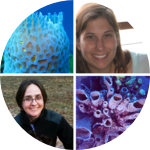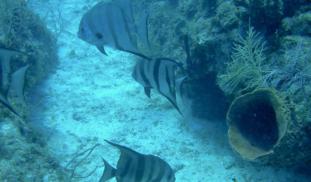Please wait...
About This Project
Sponges are nature's filtration systems; they can filter up to 50,000 times their own volume in a day. Changes to coral ecosystems from climate change make reef sponges increasingly important. This project takes one of the first steps to explore the impact of sponges on nutrient availability on coral reefs.
Contributions are tax deductible, and backers will get timely labnote field updates. We invite you to ask questions and connect with us directly in the comments - we'd love to hear from you!

Browse Other Projects on Experiment
Related Projects
Coupling of microbial carbon capture and utilization (microCCU) and direct air capture (DAC)
Reducing atmospheric CO2 is critical to mitigating climate change, and negative emission technologies (NETs...
Enhancing Carbon Sequestration By Improving Photosynthetic Efficiency
Enhancing photosynthesis can help mitigate greenhouse gases, but plants and algae use only visible light...
Copper gene-switch for controllable gene expression in plants
Chemical-induced promoters or "Gene Switches" allow expressing a gene of interest in a controllable manner...





